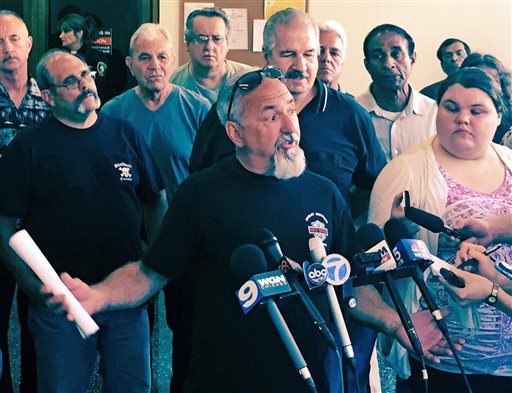-
Tips for becoming a good boxer - November 6, 2020
-
7 expert tips for making your hens night a memorable one - November 6, 2020
-
5 reasons to host your Christmas party on a cruise boat - November 6, 2020
-
What to do when you’re charged with a crime - November 6, 2020
-
Should you get one or multiple dogs? Here’s all you need to know - November 3, 2020
-
A Guide: How to Build Your Very Own Magic Mirror - February 14, 2019
-
Our Top Inspirational Baseball Stars - November 24, 2018
-
Five Tech Tools That Will Help You Turn Your Blog into a Business - November 24, 2018
-
How to Indulge on Vacation without Expanding Your Waist - November 9, 2018
-
5 Strategies for Businesses to Appeal to Today’s Increasingly Mobile-Crazed Customers - November 9, 2018
Attorney says city will appeal judge’s ruling that Chicago pension law is
CHICAGO A law aimed at shoring up two of Chicago’s financially shaky public worker retirement systems violates pension protections in the Illinois constitution, a judge ruled on Friday.
Advertisement
Stephen Patton, Chicago’s corporation counsel, said the city plans to appeal. “We now look forward to having our arguments heard there”.
This ruling echoes the May ruling by Illinois state court that the state’s pension reforms were unconstitutional.
The city also had to increase its contribution to the municipal and laborers’ pension funds. Workers, retirees and labor unions sued, saying the constitution prohibits reducing pension benefits.
Mayor Emanuel and the city of Chicago are back to square one in efforts to resolve the funding crisis for two of the city’s four pension funds, likely exacerbating the city’s ongoing fiscal problems.
Chicago’s pension reforms have been tossed out in court. Regardless, city officials insist that the pension funds will lose solvency if not overhauled, and warned that residents could see a huge tax increase as a result of the ruling.
Immediately after the ruling, Standard & Poor’s said it would probably lower the city’s rating again if a solution isn’t found. S&P already cut Chicago’s rating earlier this month to BBB+, or three levels above junk. The law also put city taxpayers on the hook for at least $750 million in additional revenue over the next five years to fund those beleaguered pension systems.
The law that took effect this year, reduced cost-of-living increases and requires workers to pay more.
Without the ability to make unilateral benefit cuts, Chicago and state officials turned to the consideration concept, which involves trading something of value within a contract, as a way to skirt constitutional protections. And the state is operating without a budget because of stalemate between Republican Governor Bruce Rauner and the Legislature’s Democratic leadership. Anders Lindall, spokesman for the American Federation of State, County and Municipal Employees Council 31, said the typical beneficiary receives a pension of about $32,000, and doesn’t receive Social Security benefits.
The city says if the law is voided, the two systems would run out of money within 10 to 13 years.
Advertisement
Matt Butler, a Moody’s analyst, said the ruling was “credit neutral” for the city pending a final decision by the state’s high court.





























